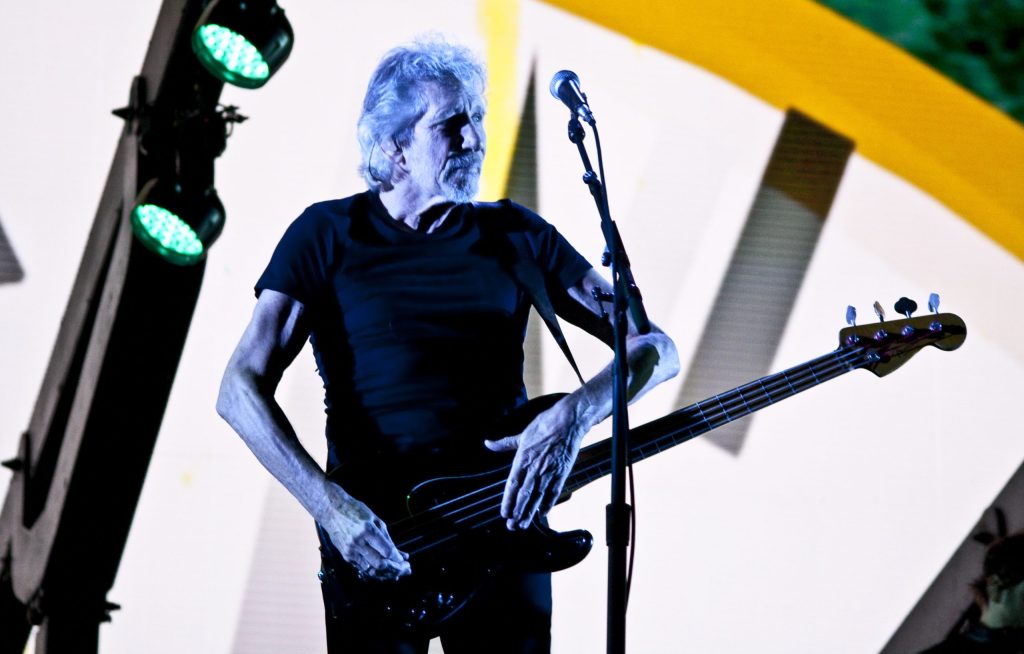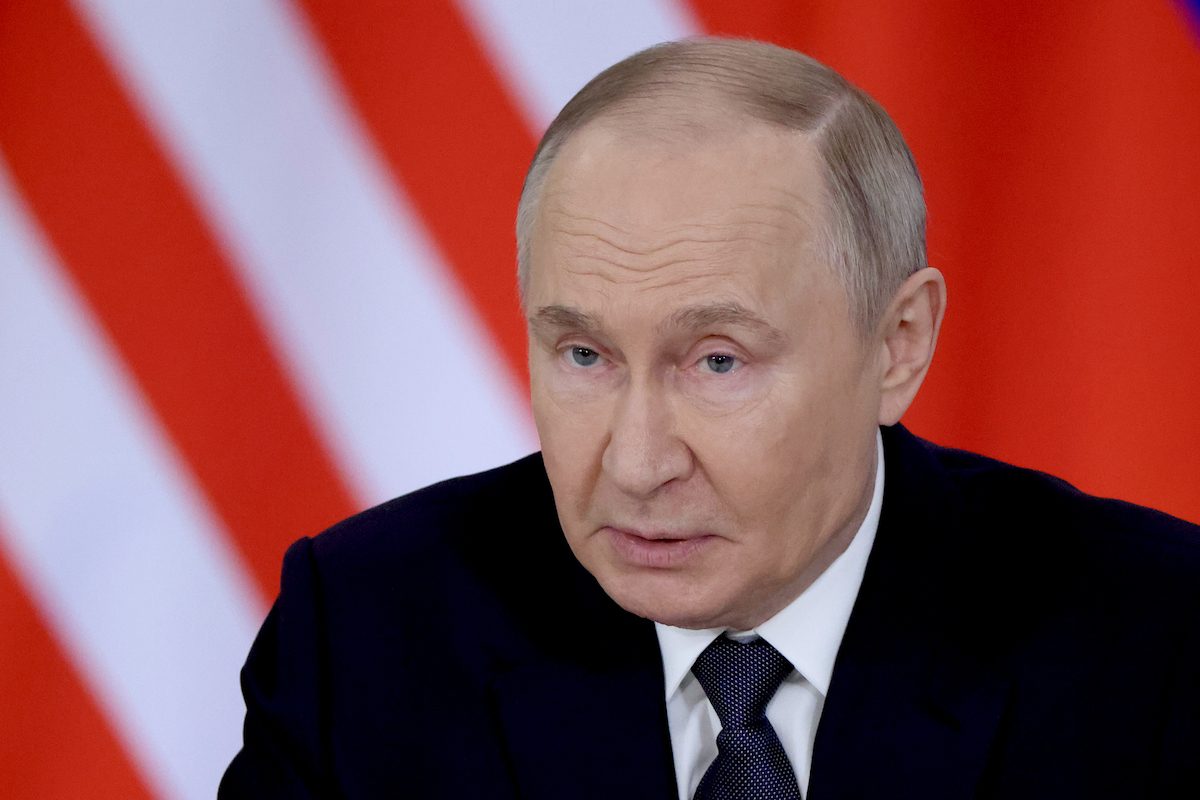The author and lyricist Polly Samson did not mince her words earlier this month when she attacked the musician Roger Waters on Twitter. She described him as “anti-Semitic to your rotten core. Also a Putin apologist and a lying, thieving, hypocritical, tax-avoiding, lip-synching, misogynistic, sick-with-envy, megalomaniac.” She ended with “Enough of your nonsense.”
Not only did her husband, Pink Floyd singer and guitarist David Gilmour, retweet her attack on his former bandmate, he added, “Every word demonstrably true.”
Waters’s response was to tweet, with appropriate pomposity, “Roger Waters is aware of the incendiary and wildly inaccurate comments made about him on Twitter by Polly Samson which he rejects utterly.” The tweet ended ominously, “He is currently taking advice to his position.”
It has been a busy time for the man who describes himself as “bass player, co-lead vocalist, lyricist and principal songwriter in the rock band Pink Floyd.” Not only has he re-recorded the band’s 1973 album Dark Side of the Moon by himself — complete with prose poetry read out on what were previously instrumental tracks — but he has addressed the Security Council of the United Nations at Russia’s request. While acknowledging that the invasion of Ukraine was illegal, and condemning it in “the strongest possible terms,” Waters also stated that “the Russian invasion of Ukraine was not unprovoked, so I also condemn the provocateurs in the strongest possible terms.”
It remains unclear why Waters, never a man to shy away from controversy, has decided, at the age of 79, to involve himself in global politics. Granted, he has previously been forthright in his support for Palestine, and equally forthright in his attacks on Israel, which he has described as the world’s harshest regime. About its citizens, he has said that “[the] right wing rabbinate… believe that everybody that is not a Jew is only on Earth to serve them.” Even if he declares that there is “not a single millisecond of anti-Semitism anywhere in my life,” his anti-Israel, anti-Ukraine and pro-Putin stances seem somewhat niche in their concerns. After all, he has said of the Russian president recently, “It may be that he’s leading his country to the benefit of all of the people of Russia.”
Does the musician really have a “rotten core,” as Samson suggests? Or is he much misunderstood?
Pink Floyd remains one of the most beloved British bands of the twentieth century, but their disintegration and endless, endless litigation are nearly as well known as the music they produced. Broadly speaking, Gilmour has emerged from the whole debacle better than Waters, releasing two popular (if artistically undistinguished) albums under the Pink Floyd name, as well as an experimental instrumental work, The Endless River, which gave us a final Floyd single, “Louder than Words,” complete with lyrics by Samson. The opening words, “We bitch and we fight, diss each other on sight,” were widely taken to refer to the animosity between Gilmour and Waters. That was true even if the suitably anthemic chorus (“It’s louder than words, this thing that we do/Louder than words, the way it unfurls”) seems to acknowledge that the legacy of Pink Floyd would end up being greater than any internecine band squabbling.
It was believed — clearly erroneously — that Waters and Gilmour had patched up their differences when Pink Floyd played a reunion gig as part of the Live 8 celebrations in 2005. I was at a Roger Waters solo gig in 2011 in London, where he played The Wall live in its entirety, and Gilmour guested on “Comfortably Numb.” The electrifying moment made news headlines. Nobody ever expected the pair to become best friends again, but it seemed as if a truce had been declared.
Now it’s been ripped apart in the most public of fashions. It remains to be seen whether Waters really will sue Samson — and indeed Gilmour — for libel, or whether he will merely chuckle, curse his former bandmate and get on with the business of re-recording the Pink Floyd back catalog. Either way, this saga will probably only be resolved when one of the parties involved dies, leaving behind one of the greatest — and most complex — musical legacies of the twentieth century.

























